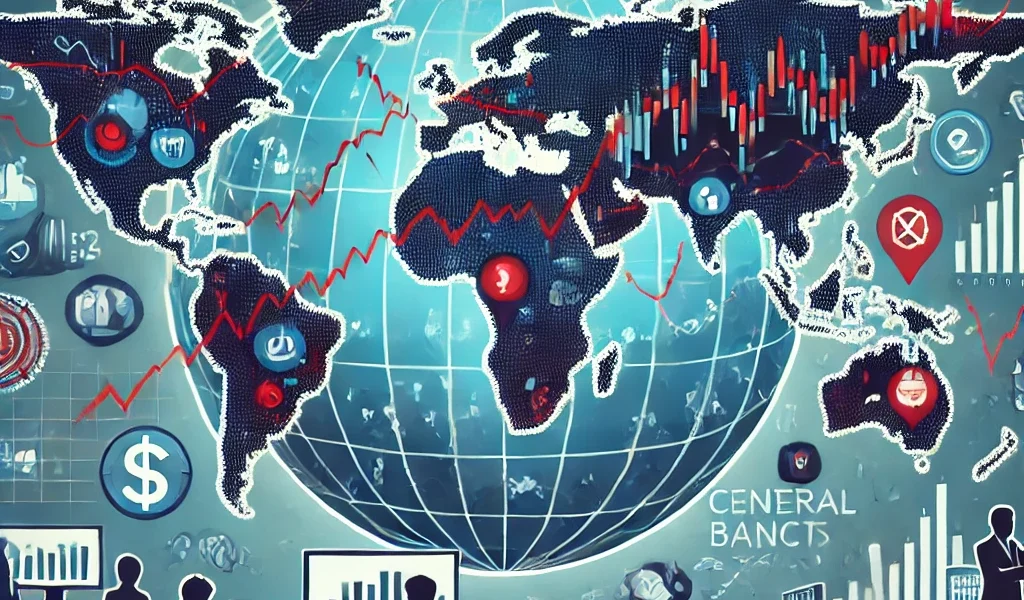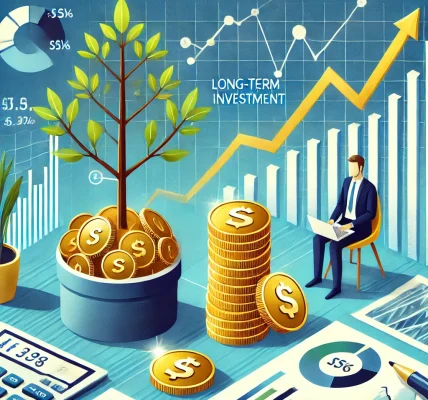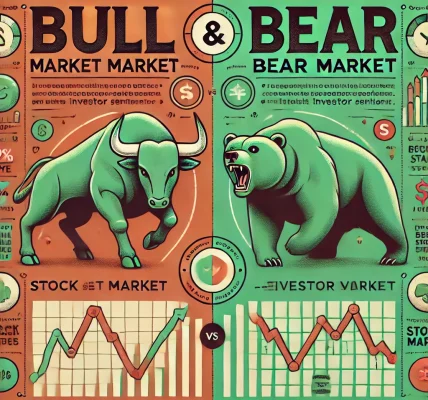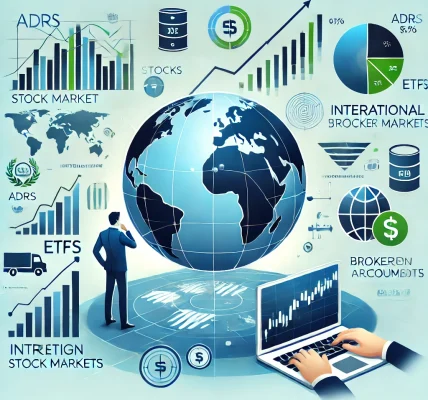The stock market is highly sensitive to global events, reacting to geopolitical tensions, economic data, natural disasters, and other significant occurrences. Investors closely monitor these events, as they can trigger market volatility, influence investor sentiment, and shift long-term market trends.
In this blog, we will explore:
- How global events influence the stock market
- Different types of global events that impact stock trends
- Examples of major historical events and their effects on the market
- Strategies for investors to navigate market fluctuations
1. How Global Events Influence the Stock Market
A. Market Sentiment and Investor Behavior
Stock markets thrive on investor sentiment. When uncertainty arises due to global events, investors may react emotionally, leading to increased volatility. Fear often drives sell-offs, while optimism fuels market rallies.
B. Economic Indicators and Global Data
Events such as inflation reports, employment data, and central bank decisions influence investor expectations about economic stability and growth. These factors contribute to fluctuations in stock prices.
C. Supply Chain Disruptions
Global events, such as pandemics or trade wars, disrupt supply chains, affecting companies’ revenues and profitability. Investors analyze these impacts to predict stock price movements.
2. Types of Global Events That Impact the Stock Market
A. Geopolitical Conflicts
Wars, trade disputes, and diplomatic tensions can create uncertainty, leading to increased volatility in stock markets. For example, conflicts between major economies often result in fluctuations in commodity prices and stock indices.
B. Economic Crises
Recessions, financial meltdowns, and banking crises have profound effects on stock markets. The 2008 financial crisis, for instance, led to massive market downturns worldwide.
C. Pandemics and Health Crises
Health crises like the COVID-19 pandemic cause market shocks due to economic shutdowns, increased unemployment, and changes in consumer behavior. Certain industries, like travel and hospitality, may suffer, while tech and healthcare stocks can benefit.
D. Natural Disasters
Earthquakes, hurricanes, and other natural calamities can impact local economies, causing fluctuations in insurance, construction, and energy stocks.
E. Central Bank Policies and Interest Rate Decisions
Decisions by central banks, such as the U.S. Federal Reserve or the European Central Bank, on interest rates and monetary policies significantly impact stock markets. Rate hikes can lead to stock sell-offs, while rate cuts often drive market gains.
F. Technological Breakthroughs and Industry Disruptions
Innovation in artificial intelligence, renewable energy, and other fields can influence stock markets. Companies leading in these sectors may see increased valuations, while outdated industries may decline.
3. Historical Examples of Global Events and Their Impact on the Stock Market
A. The 2008 Financial Crisis
Triggered by the collapse of Lehman Brothers and the subprime mortgage crisis, the stock market experienced one of the worst crashes in history. The S&P 500 dropped over 50% from its peak, taking years to recover.
B. COVID-19 Pandemic (2020)
Stock markets saw an initial collapse due to global lockdowns, but tech and pharmaceutical stocks surged as digital transformation accelerated and vaccine developments progressed.
C. Russia-Ukraine War (2022-Present)
The war led to energy price spikes, supply chain disruptions, and stock market volatility, particularly in European and global energy markets.
D. Brexit (2016)
The UK’s decision to leave the European Union resulted in a sharp decline in the British pound and fluctuations in European stock markets.
4. Strategies for Investors to Navigate Market Volatility
A. Diversification
Investing across different asset classes and regions helps reduce risk during global crises.
B. Staying Informed
Monitoring global events and understanding their market impact can help investors make informed decisions.
C. Avoiding Emotional Investing
Panic-selling during market downturns often leads to losses. Long-term investors should focus on fundamentals rather than short-term volatility.
D. Hedging Strategies
Using options, gold, or bonds can help protect portfolios against market downturns caused by global events.
5. Conclusion
Global events significantly influence stock markets, creating risks and opportunities for investors. Understanding the impact of geopolitical conflicts, economic crises, and central bank decisions helps investors make informed choices. By adopting diversification, staying informed, and using hedging strategies, investors can navigate market uncertainties effectively.
Stay prepared and invest wisely in an ever-changing global economy.




